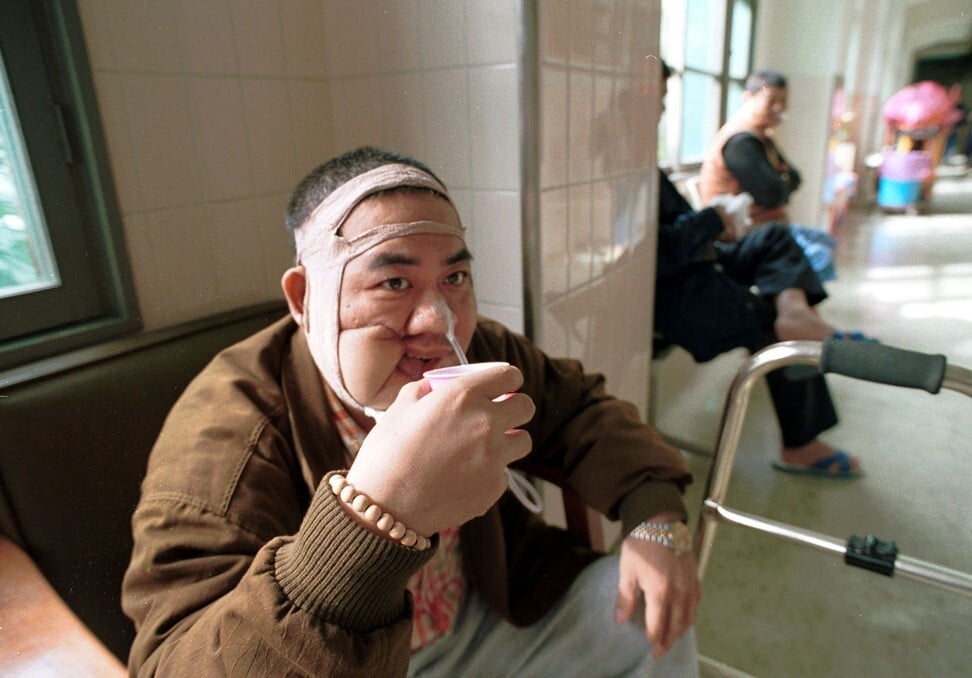
A ‘cancerous snack’ is starting to see raised eyebrows from Chinese government
- Chewing betel nuts is common across Asia, and is famous for turning users’ mouths a bright red colour
- But the links to oral cancer are shocking, so the Chinese government is trying to clamp down on advertising
Famous for the remarkable red residue they leave in users’ mouths, betel nuts are a common vice across Asia thanks to the “buzz” they give to chewers.
“We must promptly organise inspections and cleanups to ensure that the requirements are implemented. We should safeguard the interests of the people and create a good communication environment,” the announcement read.

The nuts are commonly compared to caffeine, tobacco and alcohol for their relatively mild short-term effects but addictive nature. The high is described as a slight buzz and stimulant, similar to nicotine.
The core chemical to the high is arecoline, and a study in PLOS One, a peer-reviewed scientific journal, in 2015 found the chemical stimulates the same receptors in the brain that causes nicotine addictions.

In the past couple of years, the cancer-causing effects have placed betel nuts under the microscope for Chinese advertising regulators.
In March 2019, the Hunan Provincial Areca Nut Food Industry Association banned “all forms of advertising”. However, SixthTone, an online news site, reported that advertisements were still easy to find in 2021.
The fruit is grown mostly in Hainan province and is processed in Hunan and, according to a 2019 report in The Lancet, a peer-reviewed medical journal, the vested interests in the areca plant dissuaded the Chinese government from heavy-handed regulations.
This, the authors wrote, meant “areca nut advertising is laissez-faire and the areca nut industry sponsorship of well-known television programmes is growing”.
The official website for the Hunan Betel Food Industry Association still has multiple articles advocating the health benefits of the nut.

Areca nuts are also a part of traditional Chinese medicine and are believed to improve the intestinal tract or help someone feel less cold.
However, the carcinogenic nature of areca nuts is clear, and the cancer statistics from chewing betel nuts are shocking.
The Lancet report cited a study that looked back at 8,222 people with oral cancer in Hunan province. It found that 90 per cent of these patients chewed areca nuts.
A study from CNKI, a Chinese research institute, reported oral cancer rates in Hunan were 30 per cent higher than in the rest of the country from 2009 to 2015.

In Taiwan, another place where chewing betel nuts used to be common, 80 to 90 per cent of people with oral cancer or “precancerous legions” in 2015 chewed the nut, according to the BBC. According to Taiwan government health departments, a national anti-chewing campaign in Taiwan cut the user rate from 17.2 per cent in 2007 to below 7 per cent in 2018.
The Lancet report called on the Chinese government to use advertising restrictions as a step towards a “wider ban on the nut in the future”. It acknowledged that such policies would harm farmers and other industry stakeholders but said curbing areca nut usage is more important.
“We sincerely hope that the Chinese Government will recognise the scientific evidence showing that areca is not a miracle medicinal nut as soon as possible and alert people to the fact that it is actually harmful to health,” the authors wrote.

